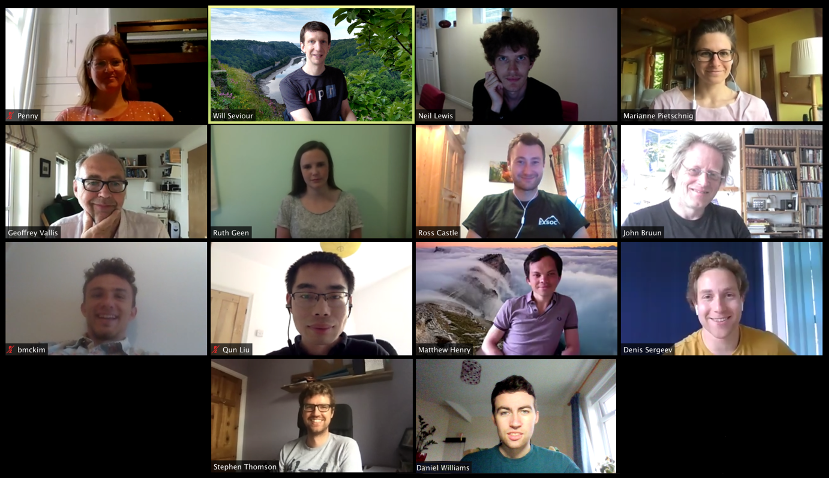
Remote team meeting (3rd June 2020), across from the top left: Penny Maher, Will Seviour, Neil Lewis, Marianne Pietschnig, Geoff Vallis, Ruth Geen, Ross Castle, John Bruun, Brett McKim, Qun Liu, Matthew Henry, Denis Sergeev, Stephen Thomson, Daniel Williams.
About us
The Isca development team biographies
Isca development team @ Exeter
The Isca development team includes the following:
Faculty:
Prof. Geoff Vallis — the BDFN (Benevolent Dictator For Now)
Dr. Will Seviour
Dr. Stephen Thomson
Postdoctoral researchers:
Dr. Matthew Henry
Dr. Neil Lewis
Dr. Penelope Maher
Dr. Daniel Williams
PhD Students:
Ross Castle
Regan Mudhar
Charlie Turrell
Isca developers elsewhere
We are very grateful for the contributions of several developers outside Exeter, listed here. For a more up-to-date list of contributors please see our Github repository.
Dr. Greg Colyer (University of Oxford)
Dr. Robert Fabjer (McGill University)
Dr. Ruth Geen (University of Birmingham)
Dr. Martin Jucker (University of New South Wales)
Dr. Wanying Kang (MIT)
Dr Brett McKim (MPI)
Dr Matthew McKinney (UCLA)
Dr. Dann Mitchell (University of Bristol)
Dr. Denis Sergeev (University of Bristol)
Nathanael Wong (Harvard University)
Alumni
Some members of the Isca team have now moved on to better things.
| Name | Previous position | Position now |
|---|---|---|
| Dr Emily Ball | PhD Student (Bristol), 2019-2023 | Barcelona Supercomputing Centre |
| Dr Erin Walker | PhD Student (Bristol), 2018-2023 | Sustainability advisor, De Grey Mining |
| Marianne Pietschnig | PhD Student and Postdoc (Exeter), 2016-2020 | Postdoctoral researcher, Exeter Geography |
| Dr Qun Liu | PhD Student (Exeter), 2017-2021 | |
| Dr James Penn | PhD Student (Exeter), 2015-2019 | Met Office |
| George Lancaster | MS Student (Bristol), 2018-2019 | Software engineer |
Past team photos
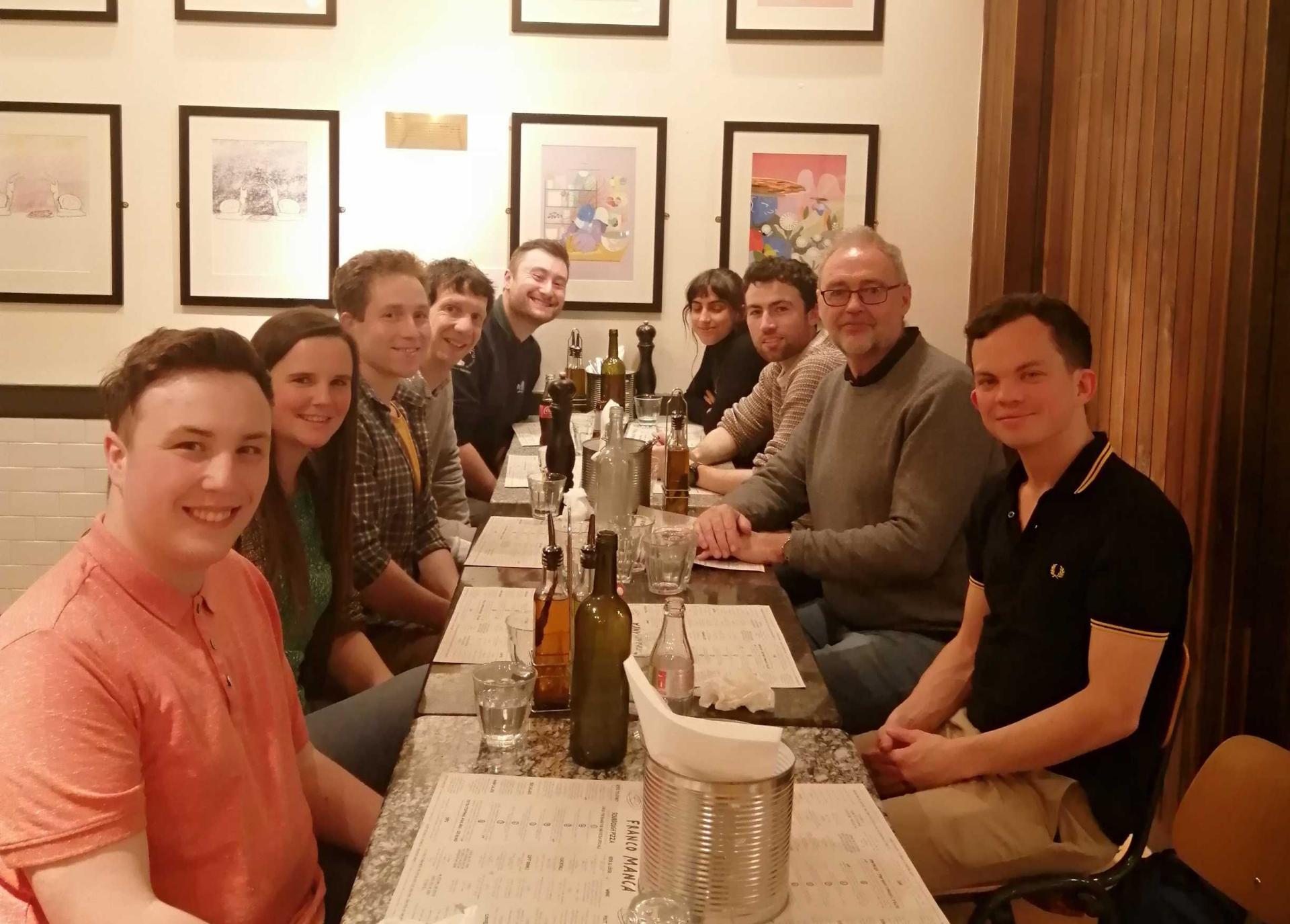
Group Dinner (7th December 2021), (L-R): Aaron Carruthers, Ruth Geen, Denis Sergeev, Will Seviour, Ross Castle, Regan Mudhar, Daniel Williams, Geoff Vallis, Matthew Henry.
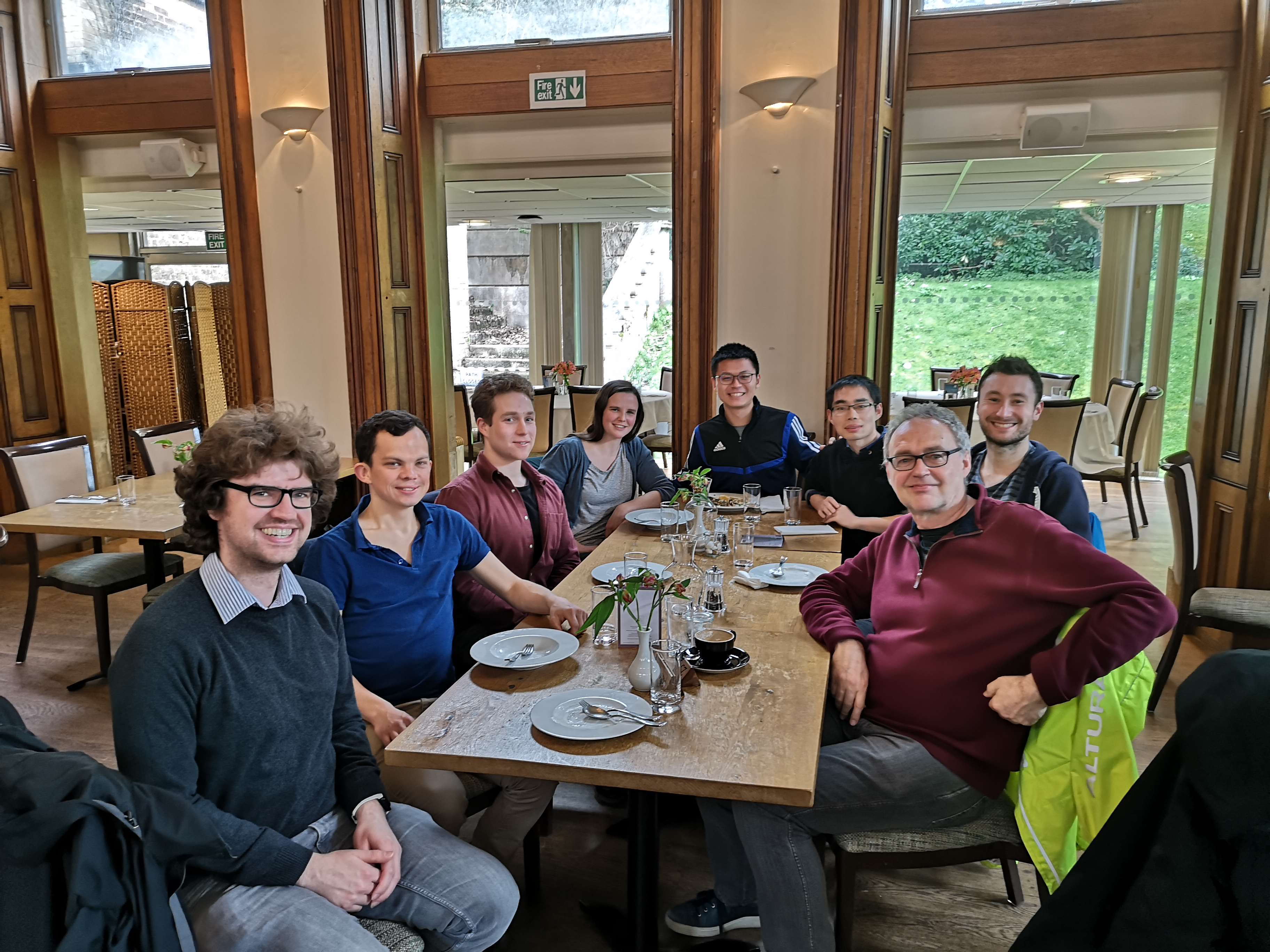
Group Lunch (9th March 2020), (L-R): Stephen Thomson, Matthew Henry, Denis Sergeev, Ruth Geen, Peiqiang Xu, Qun Liu, Ross Castle, Geoff Vallis.
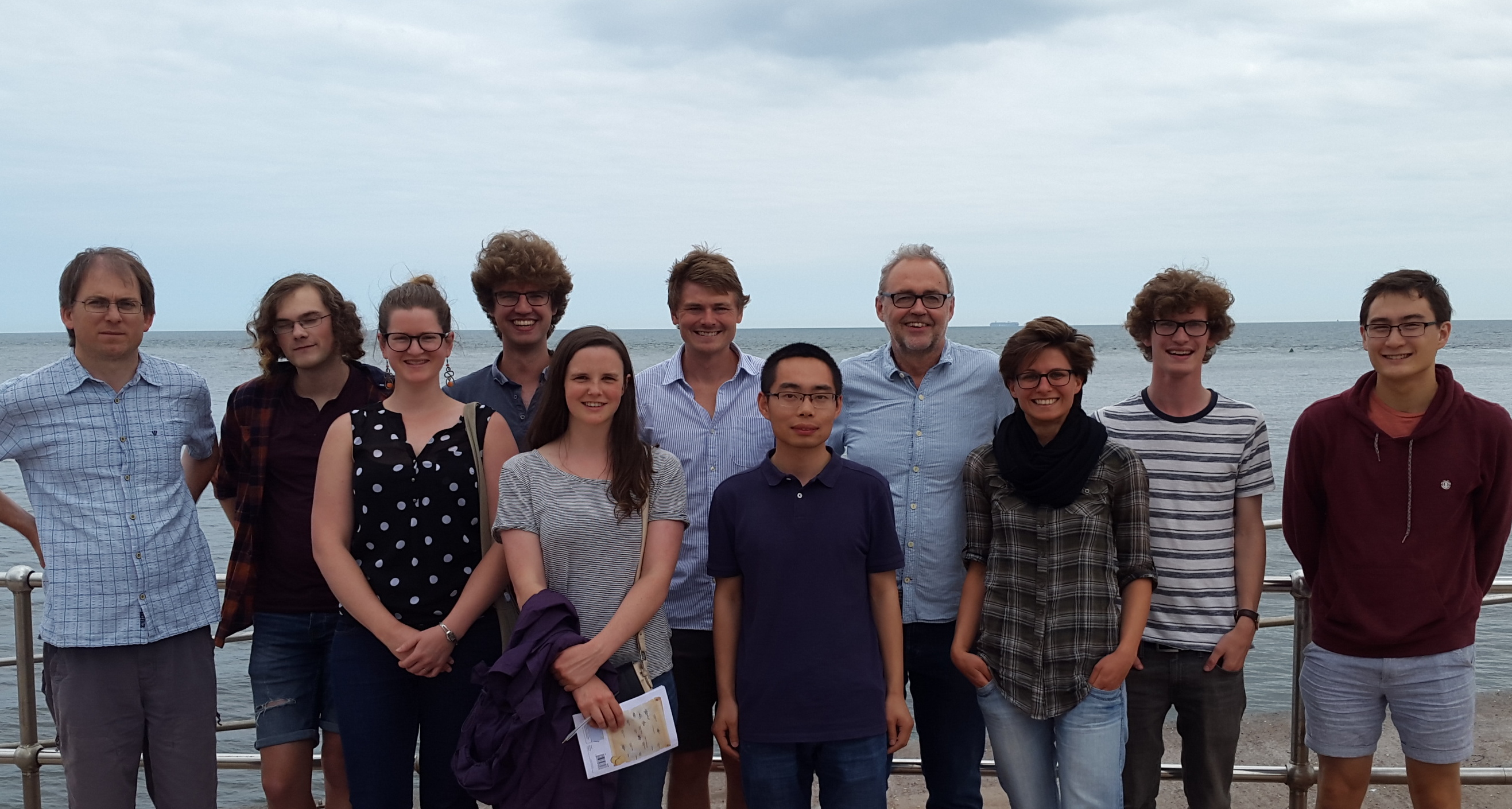
Enjoying Teignmouth beach, after a treasure hunt, on a team retreat. (18th July 2018), Back (L-R): Greg Colyer, Alex Paterson, Stephen Thomson, James Penn, Geoff Vallis, Neil Lewis and Jake Eager. Front (L-R): Penny Maher, Ruth Geen, Qun Liu and Marianne Pietschnig.
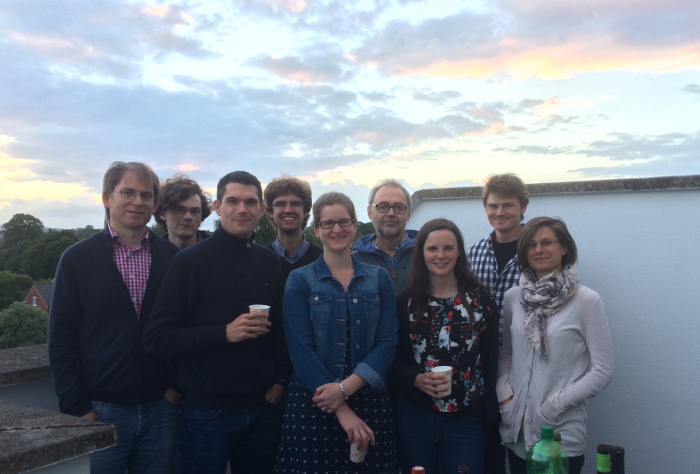
BBQ at Geoff's during Martin Jucker's visit (8th June 2017), Front (L-R): Greg Colyer, Martin Jucker, Penelope Maher, Ruth Geen, Marianne Pietschnig. Back (L-R): Alex Paterson, Stephen Thomson, Geoffrey Vallis, James Penn.